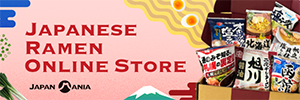Hoshitoge Terraced Rice Fields is one of the most visited spots in the city of Tokamachi in Niigata prefecture.
Terraced rice fields are sloped fields made up of many small rice fields. The terraced rice fields of Hoshitoge are known for its magnificent view, created by its rural, serene surroundings.
Read more to learn about Hoshitoge Terraced Rice Fields.
About Terraced Rice Fields

Hoshitoge Terraced Rice Field
Terraced Rice Fields, or “tanada (棚田)” in Japanese, are sloped rice fields made up of many small rice fields. These rice fields resemble large steps, and are made so for more efficiency in farming. They are sometimes referred to as “senmaida (千枚田)” too.
History of Tanada
Though the exact date is unknown, terraced rice fields are said to have been invented around the 6th to 7th century.
The words “tanada” began appearing in texts around the Muromachi Period (1336 – 1573).
Tanada Today

Farmers on a tanada
Today, tanada rice fields can be seen on mountains and hills. About 8% of Japan’s rice fields are tanada fields.
Since taking care of tanada rice fields require much stamina and effort, they have been on the decline. Today, only about 40% of the original number of tanada fields remain.
In order to protect the tanada tradition and technique, a special committee dedicated to tanada preservation was established in 1995. Since then, tanada rice fields have been well preserved and protected.
Sights at Hoshitoge Terraced Rice Fields
Here are some sights you can’t miss when visiting Hoshitoge.
Sea of Clouds

Sea of clouds
Between late June and early September, you might be able to see a sea of clouds at Hoshitoge. However, this does not happen very often, and can only be seen in the early morning hours when the weather is stable.
Water Mirror

Water mirror
In the spring and fall, the rice paddies are filled with water. The water acts as a mirror, and reflects its surroundings. You can see this between late winter and June, and late October to early winter.
In the spring, the fresh green trees are reflected onto the fields. Visit in the autumn to see the fall foliage reflected onto the field surface.

Reflection of a tree on a rice field
The reflections can be amazingly clear and still on days with little to no wind.
The Four Seasons at Hoshitoge
The views at Hoshitoge Terraced Rice Fields vary drastically by season. In the spring, cherry blossoms bloom around the fields. During the summer months, the fields are a vibrant green.

Autumn at Hoshitoge
In the fall, the rice plants turn into a rustic golden color. The surrounding trees’ leaves also bear autumn shades.

Winter at Hoshitoge
In the winter, snow covers the terraced rice fields. This unique view is drastically different than the ones you see in the other seasons.
Viewing Rules

Hoshitoge’s farmers
Though Hoshitoge Terraced Rice Fields is a popular spot to visit, it is not a sightseeing attraction. These are real rice fields managed by local farmers.
When visiting and viewing the rice fields, make sure to follow these rules.
Don’t enter the rice fields
Entering the rice fields will cause damage to the rice. Don’t enter the rice fields, and go to the designated observatory to see them. Using tripods and other equipment on the fields are also not allowed.
Don’t litter
Hoshitoge has been protected and cleaned by locals for years. And since it isn’t a tourist attraction, there aren’t any trash cans in the area. If you produce any trash, make sure to take it home with you.
Don’t touch or take any plants

Tsukushi plant
Around the rice fields, there are many natural plants, such as flowers and fungi. Don’t touch or take the plants, and keep everything the way it is.
Don’t photograph the farmers

Tractor on the rice field
The farmers working on the farms are locals. Don’t take any photos of them without their permission.
Also, if you are getting to Hoshitoge by car, be sure to park in a place that won’t be in any of the locals’ ways. It is always keep in mind that you are visiting a local farm, not a tourist attraction.
Restrooms
There is only one co-ed restroom near the rice fields, so going to the restroom before visiting is the rice fields is recommended. Nearby, you can find the road station Michi no Eki Matsudai Furusato Kaikan, where you stop to use the restroom, have a meal, buy souvenirs and more.
Access
The nearest station is Matsudai Station on Hokutetsu Railway’s Hoku Hoku Line. From there, it is a 20-minute drive.
Japan’s Traditional, Serene Landscape
The tanada scenery is a landscape unique to Japan, and seeing such a vast, peaceful view is sure to clear your mind and purify your heart.
Information
Toge, Tokamachi-shi, Niigata
025-597-3000












_600x400.jpg)













_600x400.jpg)


